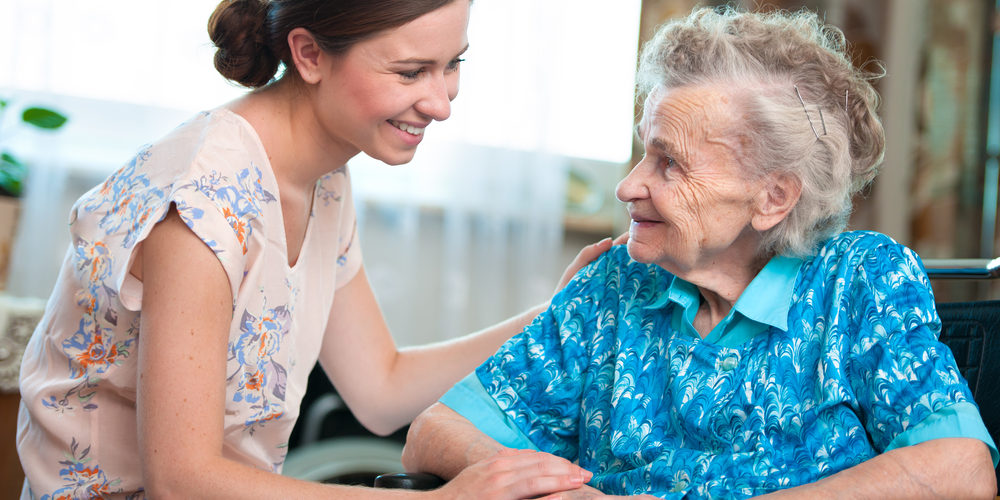The pandemic has been hard on everyone – but for older people, it has been especially devastating.
In addition to being part of a high-risk group for COVID-19, many elderly people are experiencing isolation and health consequences from staying home almost 24/7.
Deborah Jean-Baptiste, Director of the Adult Gerontology Primary Care Nurse Practitioner Program at Regis College says, ”Older adults living in these settings are at higher risk of contracting and dying from Covid-19 for many reasons. Their age, health status, and close living quarters are just a few.”
If you have elderly relatives, then you’re probably worried about them, especially if they haven’t yet been vaccinated. You might be feeling helpless if it’s not safe for you to visit yet. But even if you can’t see your loved ones in person, you can still help them.
Here are some ideas:
Encourage Elderly Relatives to Stay Busy
Many seniors are used to having an active social life. They might walk with friends, go to the senior center to play cards, or visit their families.
Isolation can take its toll and lead to mental health issues such as anxiety, depression, and even dementia. Additionally, many older people are experiencing anxiety about being in a high-risk group for COVID-19.
Inactivity is also posing health risks for seniors. Active people are more likely to stay healthy, especially as they get older. With elderly people staying at home due to the virus, many are not getting the mental and physical exercise they’re used to, which can lead to declining health.
Encourage your relatives to stay busy, even if they can’t leave home. There are lots of activities you could suggest, including walks, reading, puzzles, listening to music, and even cooking.
If you really want to get involved, why not video chat and do yoga or stretching exercises together?
Keep in Touch Often and Teach Necessary Technology Skills

While younger people often have their partners and children around them and friends calling regularly, many elderly people live alone or just with their spouse.
It’s important to show your relatives you care by keeping in touch often. Call to chat regularly and ask questions, get on camera together, and maybe even write letters!
Remember that your loved ones may need help with their technology skills in order to participate in video calls and other virtual events. Be patient and be prepared to walk them through each step so they can connect.
People are afraid of the virus, but they’re even more afraid of being forgotten. Remind them how much they matter by taking the time to reach out and teach tech skills as needed.
Educate Them on Current Scams
Unfortunately, there are lots of scams out there right now and elderly people are often easy targets. Talk with your loved ones about the most recent scams, which can come through via phone, email, or even texts.
Make sure they’re not opening or responding to suspicious-looking emails. Tell them what to watch out for and how to handle robocalls.
Run Errands
If you’re nearby, you can help your relatives out by helping with basic errands. Make a trip to the grocery store and drop off the bags on the front porch. Your elderly relatives will appreciate the help and will be happy to see your face at their door.
You could also connect by making dinner or cookies and dropping them off for your loved ones to enjoy. These gestures mean a lot and can go a long way toward making lonely relatives feel special.
Help Them Get Vaccinated
While vaccination opportunities are expanding around the country, many systems involve making online appointments, which can be difficult for some seniors.
You can help by making an appointment for your loved ones to make sure they get vaccinated as quickly as possible. It might seem like a simple process to you, but many seniors aren’t tech-savvy!
Health policies vary around the country, so make sure you understand eligibility requirements before you make an appointment. Also, make sure your relatives have safe transportation to get to and from the vaccination site.
Jean-Baptiste shares, “Transportation is often a barrier to many older adults living in the community. This therefore also becomes a barrier to getting the vaccine. One way family and friends can aid in removing barriers is by helping their loved ones navigate the resources available to them in their community.”
Become an Advocate for Improving Elder Care Safety
The pandemic has revealed many shortcomings in the American healthcare system, especially for seniors. Many eldercare facilities were devastated by the virus, causing families and communities to question how their senior loved ones were being cared for.
Healthcare safety issues are a major concern that we need to take seriously.
If you want to help the elderly beyond your own family, then consider becoming an advocate for improving elder care. Everyone should be given safe and respectful care, no matter their age. And after a long hard year of isolation, we need to care for our seniors more than ever before.




